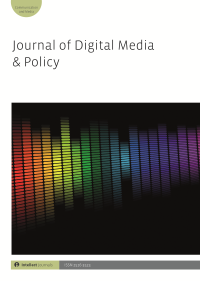
Full text loading...

The rapid expansion of video-on-demand platforms, such as Netflix or Disney Plus, associated with the advance of digital capitalism makes the Audiovisual Media Services Directive (AVMSD) adopted by the European Union a particularly relevant case for understanding the politics of the digital media policy. Based on an actor-centred constructivism, the article seeks to propose a conceptual approach to explore platform governance and highlight the key dynamics through which platform governance related to the media sector is formulated in light of the actors involved. As such, it provides an ‘in situ and in action’ view on normative building, introducing politics into the analysis of platform governance. The study focuses on the political framing of two key issues related to the crystallization of AVMSD: (1) the financial contribution of online platforms to European and national audio-visual content creation and (2) the presence and prominence of European and national audio-visual works in the online catalogues.

Article metrics loading...

Full text loading...
References


Data & Media loading...

Publication Date:
https://doi.org/10.1386/jdmp_00084_1 Published content will be available immediately after check-out or when it is released in case of a pre-order. Please make sure to be logged in to see all available purchase options.